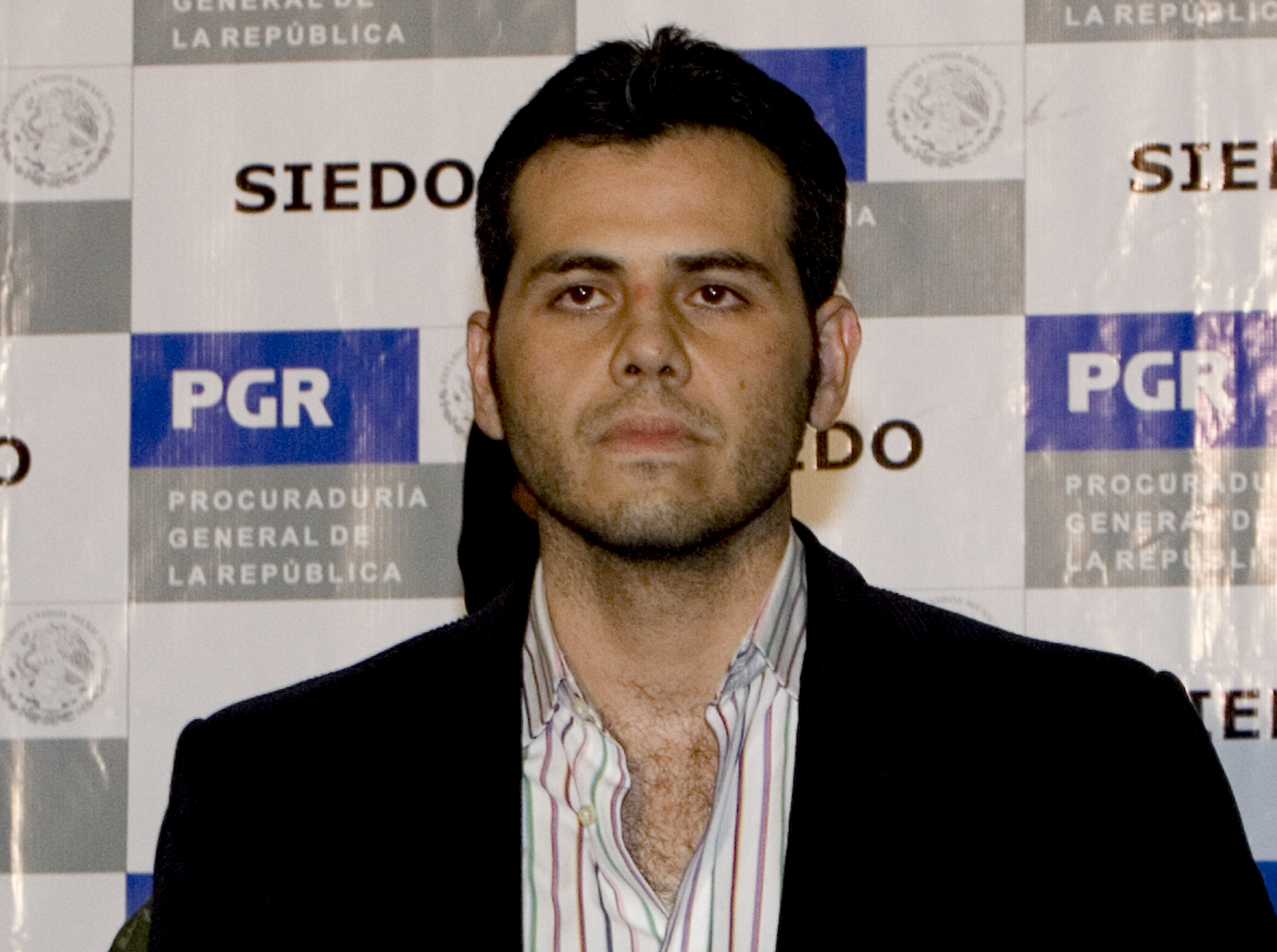Son of Mexican Drug Cartel Leader Pleads Guilty, Cooperating with Feds
 Federal authorities in Chicago revealed today that a son of the fugitive Mexican cartel leader known as "El Mayo" has entered a guilty plea and is cooperating with the U.S. government in its case against top figures in the Sinaloa drug-trafficking organization.
Federal authorities in Chicago revealed today that a son of the fugitive Mexican cartel leader known as "El Mayo" has entered a guilty plea and is cooperating with the U.S. government in its case against top figures in the Sinaloa drug-trafficking organization.
Jesus Vicente Zambada-Niebla, also known as "El Vicentillo," agreed to the deal last April, pleading to a single charge of conspiracy to possess with intent to distribute multiple kilograms of cocaine and heroin between 2005 and 2008.
The details of the previously secret agreement were made public Thursday in documents unsealed in federal court. Zambada-Niebla is believed to be the highest-ranking member of the Sinaloa Cartel ever prosecuted successfully in the United States.
"This guilty plea is a testament to the tireless determination of the leadership and special agents of DEA's Chicago office to hold accountable those individuals at the highest levels of the drug trafficking cartels who are responsible for flooding Chicago with cocaine and heroin and reaping the profits," said United States Attorney Zachary Fardon in a press release announcing the deal.
Zambada-Niebla, 39, was indicted in Chicago in August 2009, in the same case that charged his father, Ismael "El Mayo" Zambada-Garcia, and Joaquin "El Chapo" Guzman-Loera, as the kingpins of the Sinaloa Cartel.
Guzman-Loera was captured by Mexican authorities earlier this year in the resort town of Mazatlan and is presently in a Mexican prison awaiting trial.
Zambada-Garcia remains at large and is believed to have assumed control of Sinaola's operations.
In acknowledging his role in the drug-trafficking organization, Zambada-Niebla admitted he acted as a logistical coordinator for the cartel, responsible for many aspects of its operations "both independently and as a trusted lieutenant for his father," according to the agreement. He also admitted participation in the importation of multi-ton quantities of cocaine from Central and South America by various means, including aircraft, submarines, rail cars and container ships.
Under the terms of the agreement, Zambada-Niebla faces a minimum of 10 years in prison and a maximum of life. He could be fined up to $4 million and has agreed not to contest a forfeiture judgment of more than $1.37 billion. His sentencing will be delayed until his cooperation with the government comes to a close.
He could become a key witness against Guzman-Loera if U.S. authorities are eventually successful in their efforts to extradite him. Guzman-Loera is under indictment in several separate U.S. jurisdictions, including Chicago, New York, Miami and El Paso, Texas.
Zambada-Niebla was arrested by Mexican Marines in March 2009, just hours after he left a meeting with two agents of the U.S. Drug Enforcement Agency at a hotel near the U.S. Embassy in Mexico City, according to court filings in his case. The meeting with the DEA had been arranged by a Sinaloa cartel lawyer and confidant who for years had been providing information about the operations of rival Mexican cartels to U.S. authorities under a cooperation agreement.
Following his extradition to the U.S. in 2010, Zambada-Niebla's attorneys argued unsuccessfully that he was immune from prosecution because of his cooperation with U.S. authorities, but they were unable to persuade the judge that there was proof of an agreement. The DEA acknowledged meeting with him, but denied that any deal had been made.
Zambada-Niebla remains in U.S. custody, but authorities would not comment on the circumstances of his confinement.
He spent about two years in solitary confinement at the Metropolitan Correctional Center in Chicago, where prison authorities wouldn't permit him to use the rooftop exercise areas for fear of an assassination attempt or a helicopter-borne escape.
He was transferred to a federal facility in Milan, Michigan, in late 2011 - but it was unclear if he was still there. His name doesn't show up in a search of Bureau of Prisons records and a spokesman would provide no information on his whereabouts.